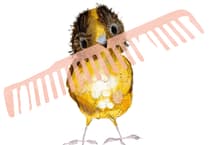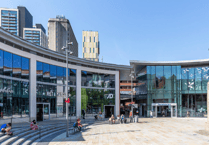WHILE searching for silver linings I noticed that the National Trust, to mark its first year fully open since the pandemic, is to celebrate the benefits of lockdown and the creative boost it provided.
Many people used that forced lockdown on all their usual habits and hobbies to take up new ones. The most simple was to use that period of permitted fresh air time to walk down paths never before followed.
Why would one walk down a residential street if there were no residents known to you? To discover what was at the end of the road. Often a footpath to some other track never trodden by you, a path to part of your home town you’d never seen.
Some put lockdown to more ingenious use. According to the National Trust, Sir Isaac Newton, then aged 23, was sent home from Cambridge during the Great Plague of 1666 and thus was given time to develop many of his most influential theories. Yes, the incident with the apple is reckoned to have happened during that period.
Local resident Brian Urwin had a bit of an apple moment during a recent lockdown. Living in the Mount Hermon area, he started wondering why it should be so named.
One thing, one road, one house, led to another. The result of his searches was entitled Living the High Life on Mount Hermon: 1888 to 1910.
It is the fascinating story of some of the houses built in the late 1880s and their occupants. Brian is a member of Woking History Society, which makes an annual presentation of the Atherstone Cup to one of its members who has done a piece of original research on a Woking-related topic.
Brian was a worthy winner, and was awarded the cup by membership secretary Dick Carpenter.
The society has monthly talks, sometimes in person, and sometimes via Zoom. For more information, email [email protected].
This would seem an apt place to announce a talk hosted by the Send and Ripley History Society. On Friday 10 March, Moira McQuaide will give an illustrated talk entitled Burpham – a gateway to Guildford. It is 7.30pm for an 8pm start at Ripley Village Hall, £3 for non-members.
For further information, email Clare McCann at [email protected].




